
Greetings friends of Hive, yesterday I was walking along Bolivar Avenue and I came across a series of statues of revolutionary heroes, which I found very interesting, take pictures of them to investigate a little more about each of them and how was their education and life process, I am very interested to know what led them to make those decisions to make a social revolution, in what state of consciousness would be these people? Let's see how.
Saludos amigos de Hive, ayer estaba caminando por la Avenida Bolívar y me encontré con una serie de estatuas de héroes revolucionarios, los cuales me parecieron muy interesante, tomarles fotografías para investigar un poco más sobre cada uno de ellos y como fue su proceso de educación y de vida, me interesa mucho saber que los llevo a tomar esas decisiones de hacer una revolución social, ¿en qué estado de conciencia estarían estas personas? Vamos a ver qué tal.

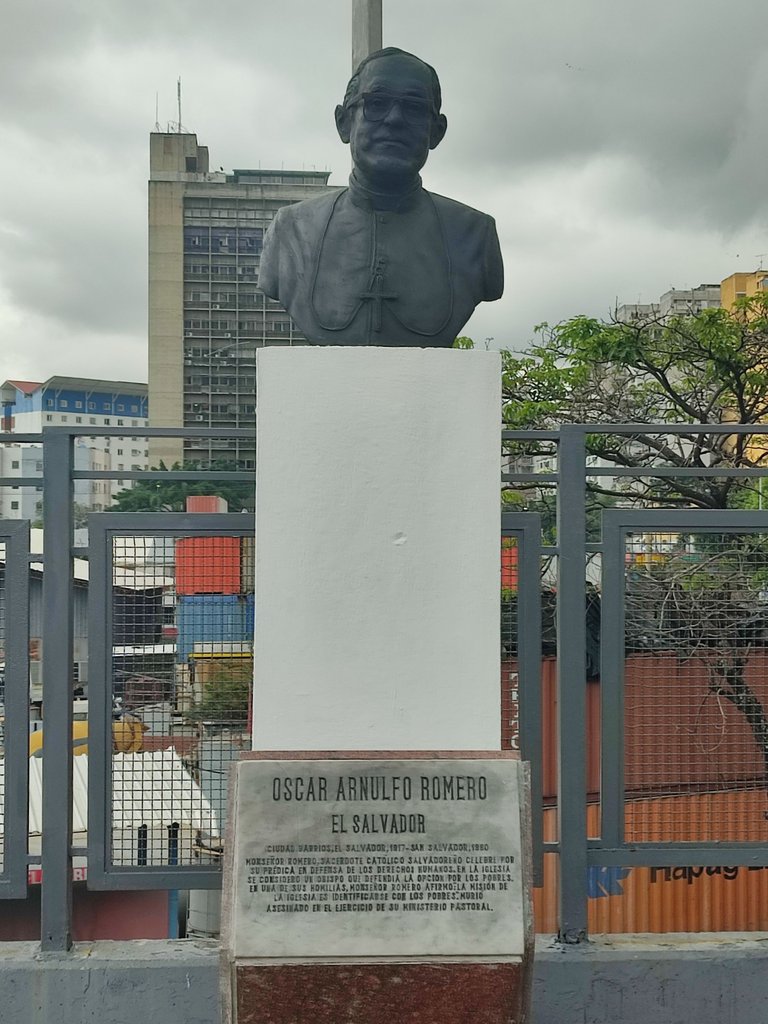

The first hero we meet is Oscar Arnulfo Romero y Galdámez of San Salvador, born on August 15, in the city of Barrios, died on March 24, 1980. He was a Salvadoran catholic priest, with a high position within the catholic organization, fourth metropolitan archbishop in San Salvador, he was known for his constant preaching in defense of human rights.
Con el primer héroe que nos encontramos es con Óscar Arnulfo Romero y Galdámez de San Salvador, nacido el 15 de agosto de en la Ciudad Barrios, murió el 24 de marzo de 1980. Era sacerdote católico salvadoreño, con un cargo alto dentro de la organización católica, cuarto arzobispo metropolitano en San Salvador, fue conocido por su contante predicación en defensa de los derechos humanos.
source of information/fuente de la información

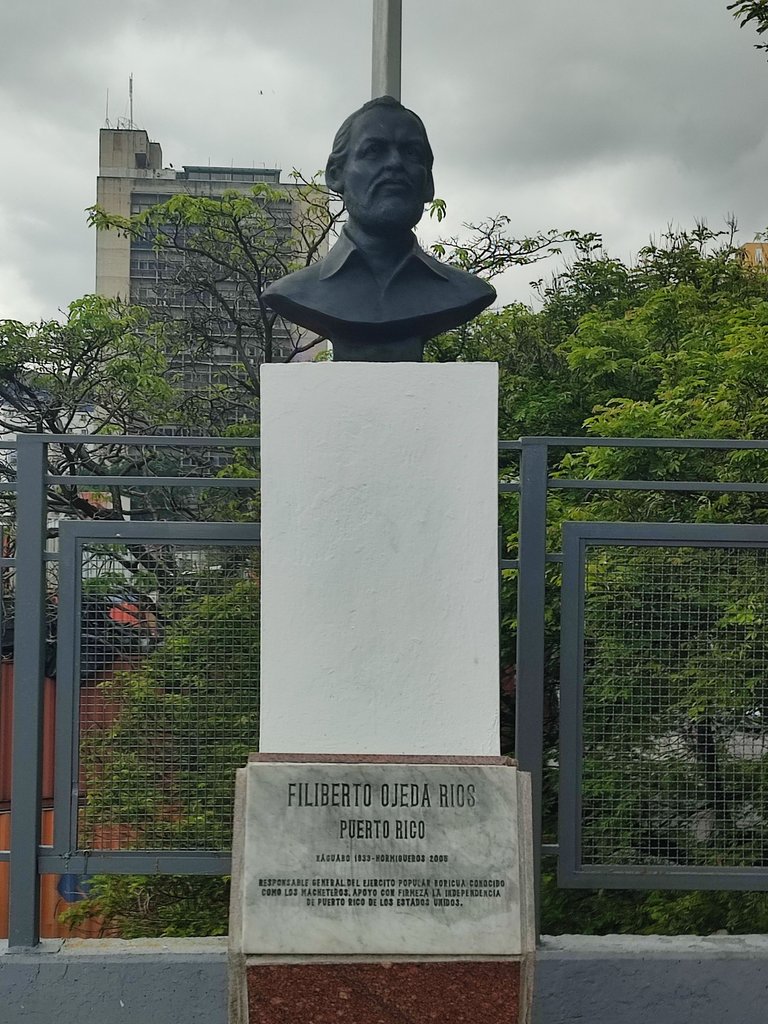

Filiberto Ojeda Ríos was a revolutionary fighter, who worked tirelessly for the independence and sovereignty of Puerto Rico, in order to end the colonialism of the United States (U.S.).
Filiberto Ojeda Ríos fue un luchador revolucionario, que trabajó de manera incansable por la independencia y soberanía de Puerto Rico, con el fin de acabar con el colonialismo de Estados Unidos (EE.UU.).
source of information/fuente de la información

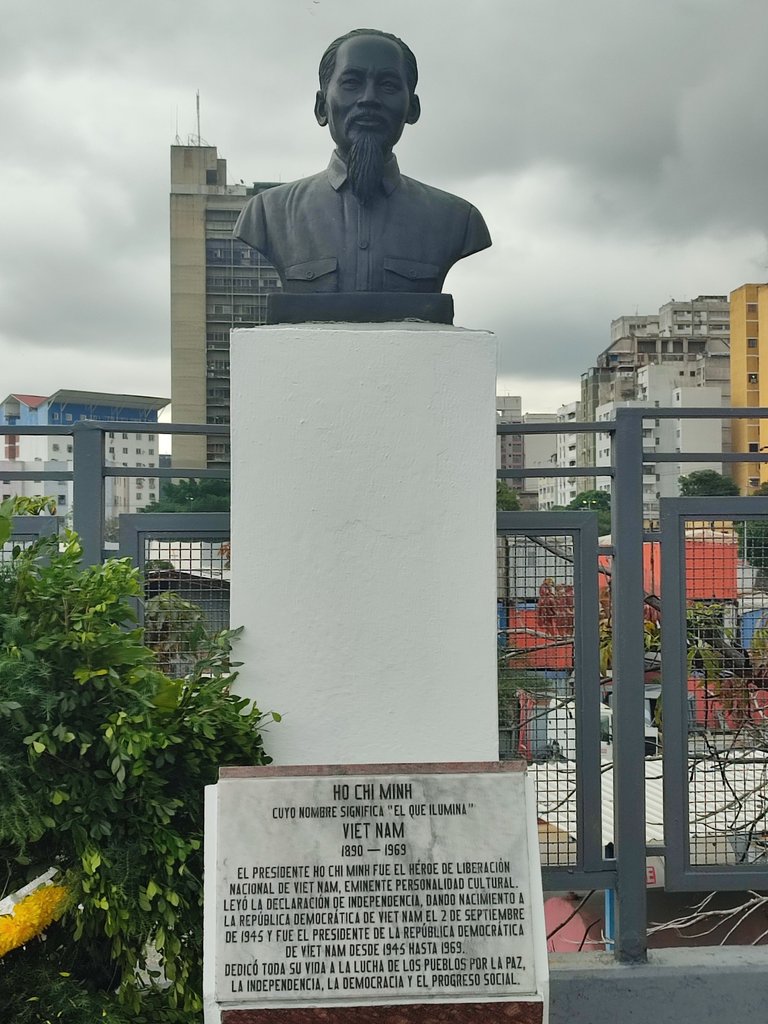

Ho Chi Minh together with other comrades managed to lead the League for the Independence of Vietnam. He succeeded in proclaiming Vietnam's independence, becoming the first president of Vietnam in 1945.
Ho Chi Minh junto a otros compañeros logró dirigir la Liga para la Independencia de Vietnam. Logró proclamar la independencia de Vietnam llegando ser el primer presidente de Vietnam, en 1945.
source of information/fuente de la información

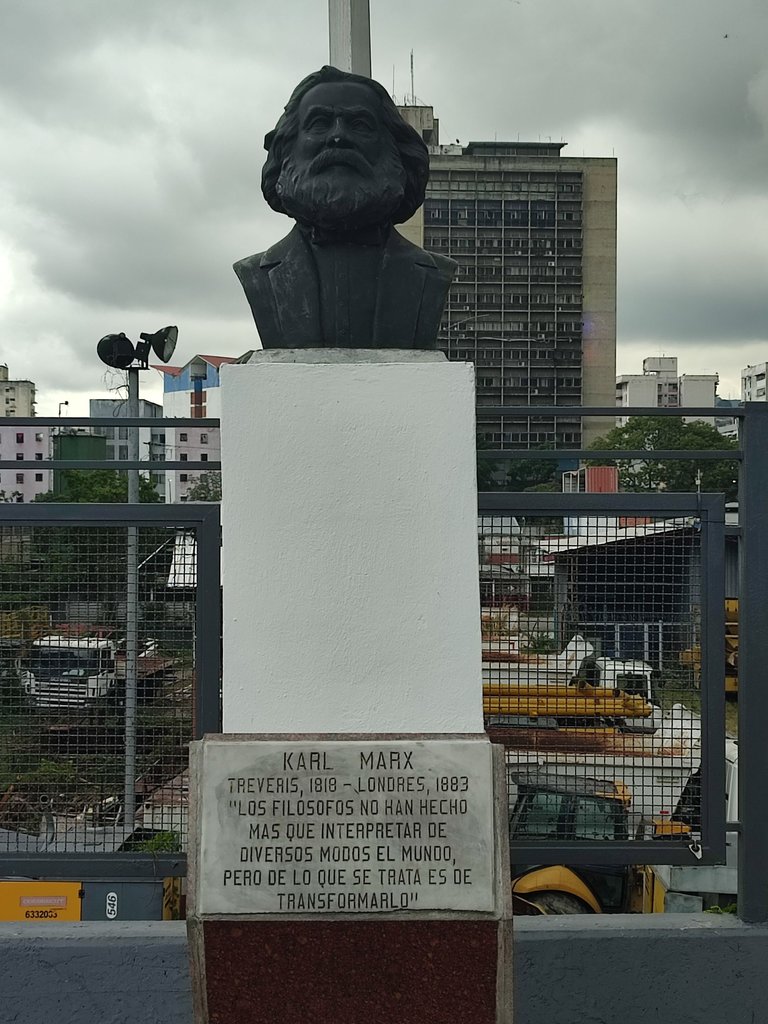

One of the most important thinkers of the past and present millennium, Karl Heinrich Marx, a great scholar of economics, philosophy, sociology, journalism, intellectualism and communist politics.
Uno de los pensadores más importantes del milenio pasado y el actual, Karl Heinrich Marx, un gran estudioso de la economía, filosofía, sociología, periodismo, intelectualidad y política comunista.

Together with Friedrich Engels, he is considered the father of scientific socialism, modern communism, Marxism and historical materialism. His best known works are the Manifesto of the Communist Party (co-authored with Engels) and Capital (volumes II and III published posthumously).
Considerado Junto a Friedrich Engels, padre del socialismo científico, comunismo moderno, marxismo y materialismo histórico. Sus obras más conocidas son el Manifiesto del Partido Comunista (en coautoría con Engels) y El capital (publicados los tomos II y III póstumamente).
source of information/fuente de la información

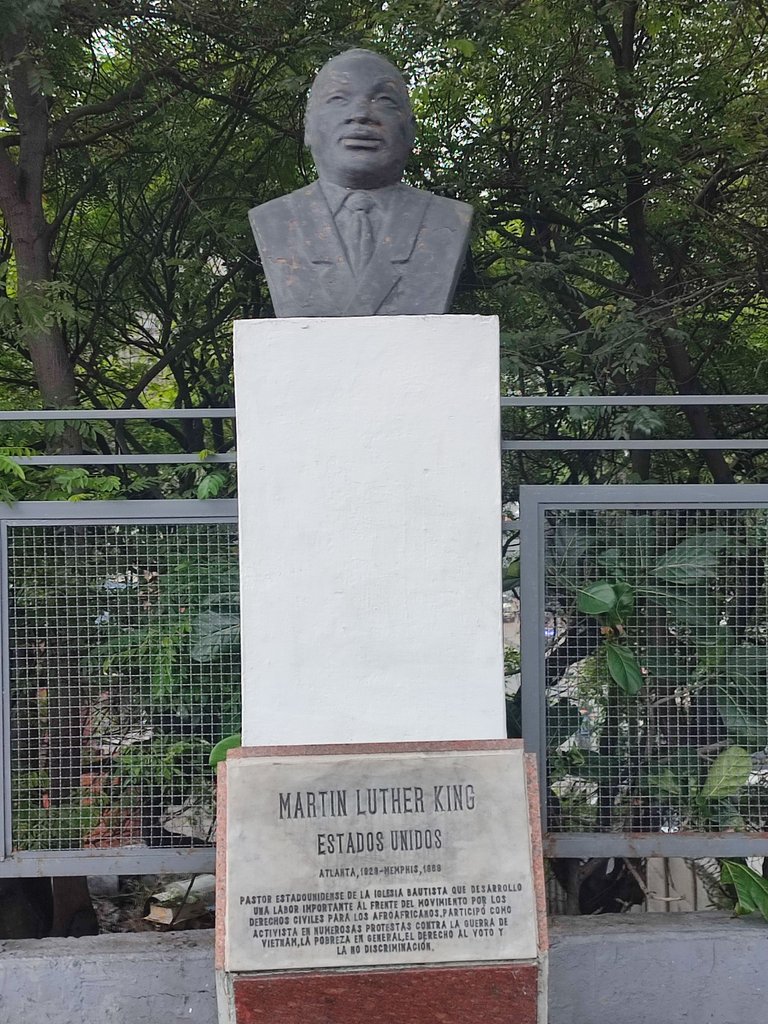

Martin Luther King was a tireless fighter against racism and for the social rights of minorities in the USA.
Martin Luther King fue un incansable luchador contra el racismo y a favor de los derechos sociales de las minorías en EE.UU.
source of information/fuente de la información

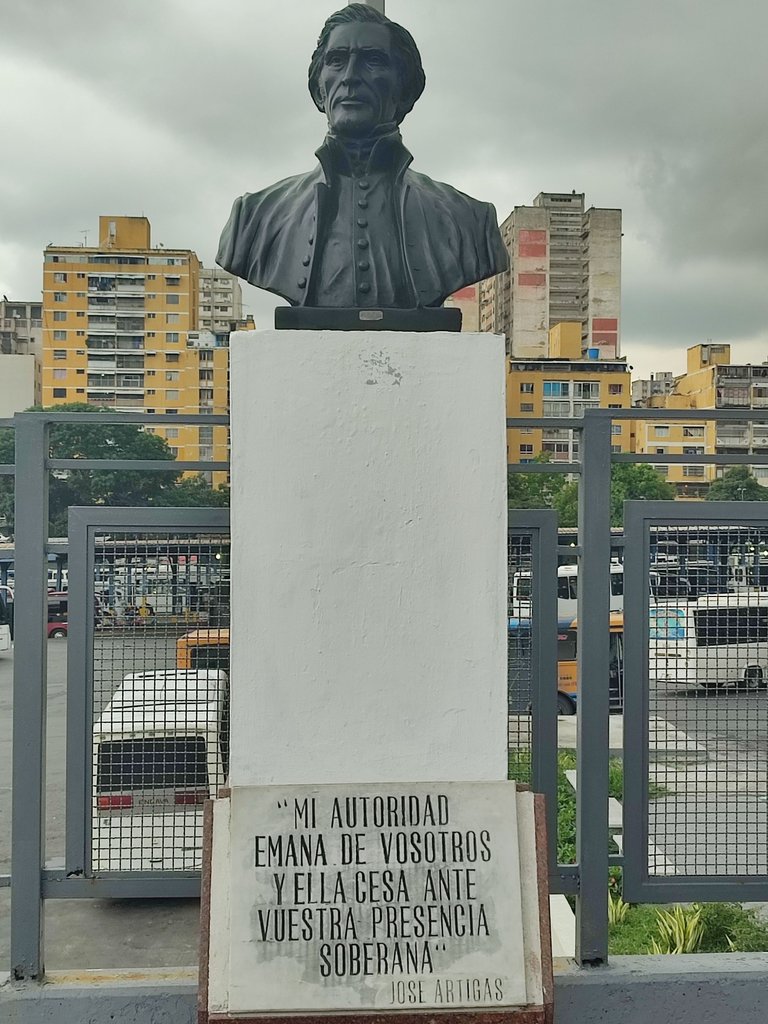

José Gervasio Artigas was a Rio de la Plata military man and statesman who acted during the War of Independence of the United Provinces of the Río de la Plata and who stood out for being the herald of federalism in what are now Uruguay and Argentina.
José Gervasio Artigas fue un militar y estadista rioplatense que actuó durante la Guerra de la Independencia de las Provincias Unidas del Río de la Plata y que se destacó por ser el heraldo del federalismo en lo que hoy son Uruguay y Argentina.
source of information/fuente de la información

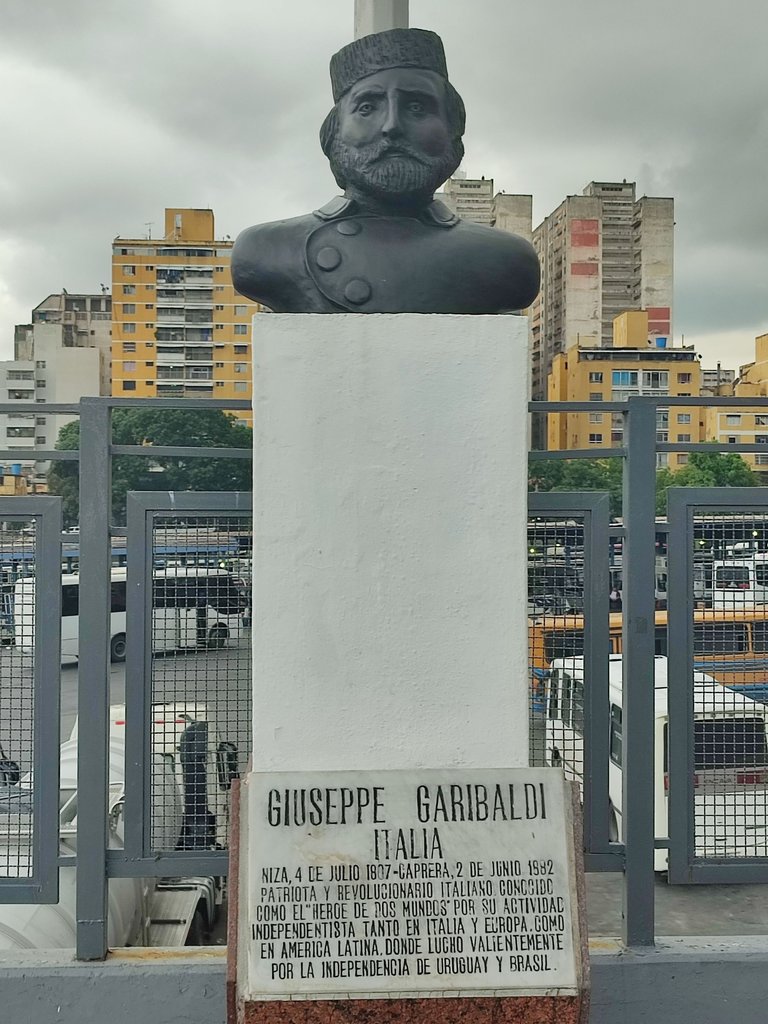

Giuseppe Garibaldi (Nice, 1807 - Caprera, Italy, 1882), Italian nationalist leader who was one of the main architects of the unification of Italy.
Giuseppe Garibaldi(Niza, 1807 - Caprera, Italia, 1882), Líder nacionalista italiano que fue uno de los principales artífices de la unificación de Italia.
source of information/fuente de la información

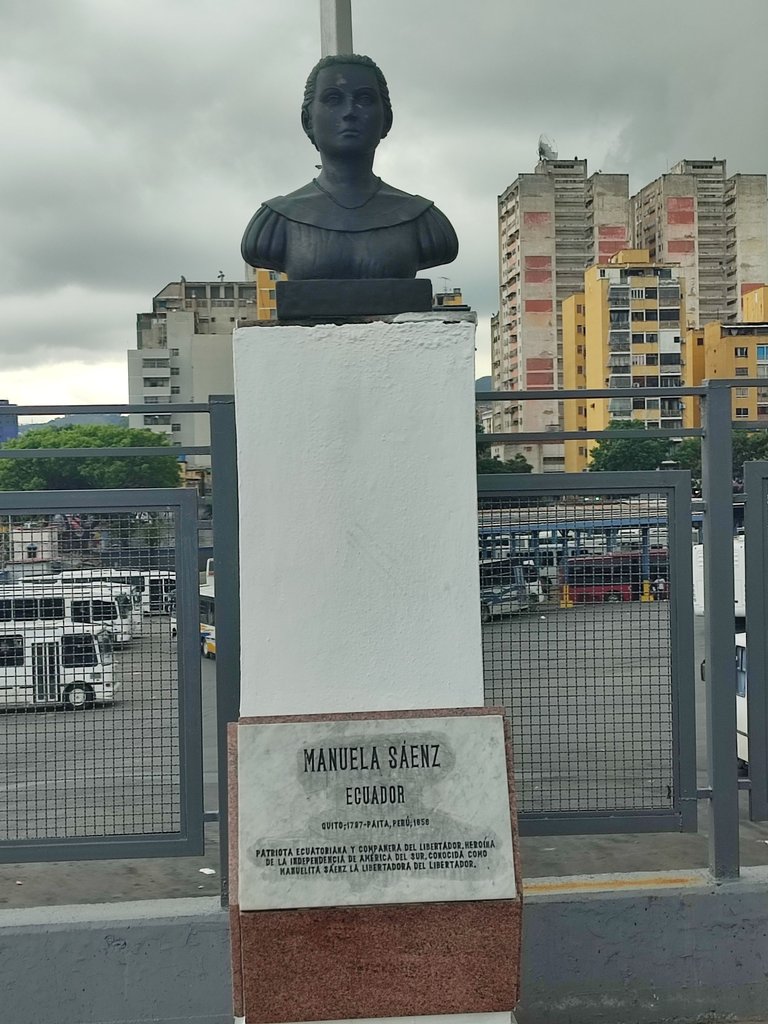

Manuela Sáenz, became Bolívar's lover (1822), who she accompanied in all his campaigns and, on one occasion, saved his life (1828), which earned her the nickname of Liberator's Libertadora (Liberator's Liberator). Her presence at the Liberator's side, during the crucial years of the emancipation struggle, would indelibly mark numerous events at the dawn of the republican life. He followed the chronological course of the main political and military events of which he was witness or protagonist: the meeting of Bolivar and San Martin in Guayaquil, the battles of Pichincha and Ayacucho, the conflict between the Liberator and Santander, the rebellion of Cordova and the dissolution of Gran Colombia. After Bolivar's death, she was exiled to Peru.
Manuela Sáenz, se convirtió en la amante de Bolívar (1822), al que acompañó en todas sus campañas y al que, en una ocasión, salvó la vida (1828), lo que le valió el apelativo de Libertadora del libertador. Su presencia al lado del Libertador, durante los años cruciales de la gesta emancipadora, marcaría indeleblemente numerosos acontecimientos en los albores de la vida republicana. Siguió el curso cronológico de los principales sucesos políticos y militares de los que fue testigo o protagonista: el encuentro de Bolívar y San Martín en Guayaquil, las batallas de Pichincha y Ayacucho, el conflicto entre el Libertador y Santander, la rebelión de Córdova y la disolución de la Gran Colombia. A la muerte de Bolívar fue desterrada a Perú.
source of information/fuente de la información

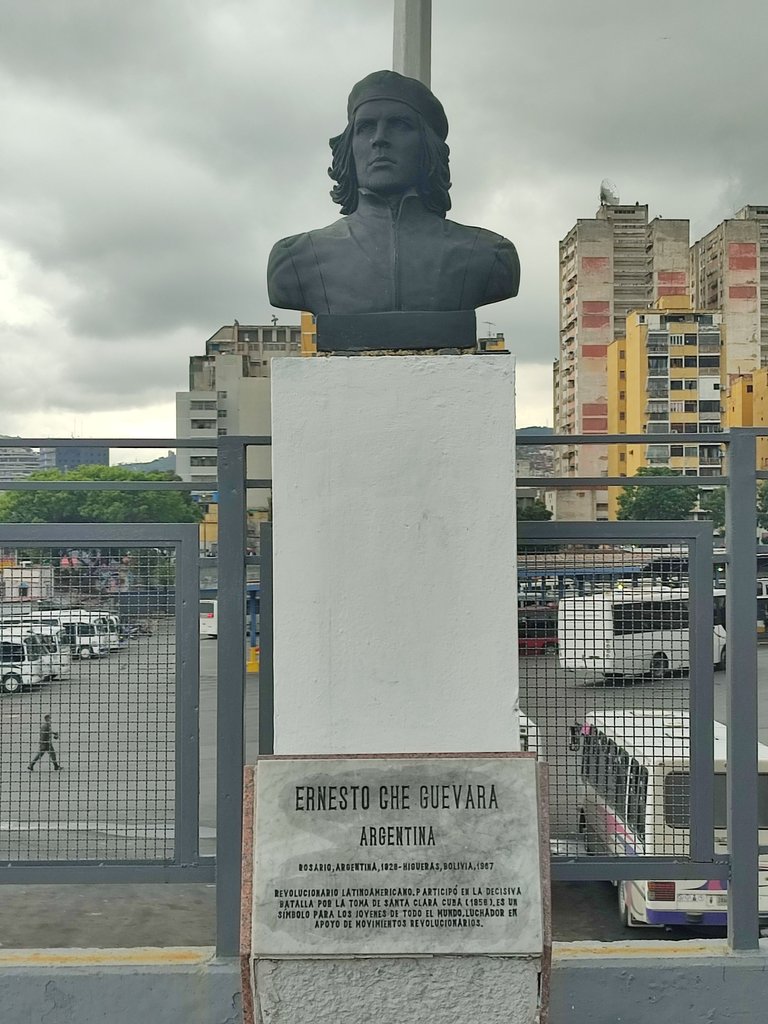

Ernesto Guevara was born in Rosario, Argentina in 1928. He was an Ibero-American fighter and revolutionary and an Argentine-Cuban statesman, writer and physician. He also led the Cuban Revolution in 1959.
Ernesto Guevara nació en Rosario, Argentina el año de 1928. Fue un combatiente y revolucionario iberoamericano y un estadista, escritor y médico argentino-cubano. Asimismo, encabezó la Revolución Cubana en 1959.
source of information/fuente de la información

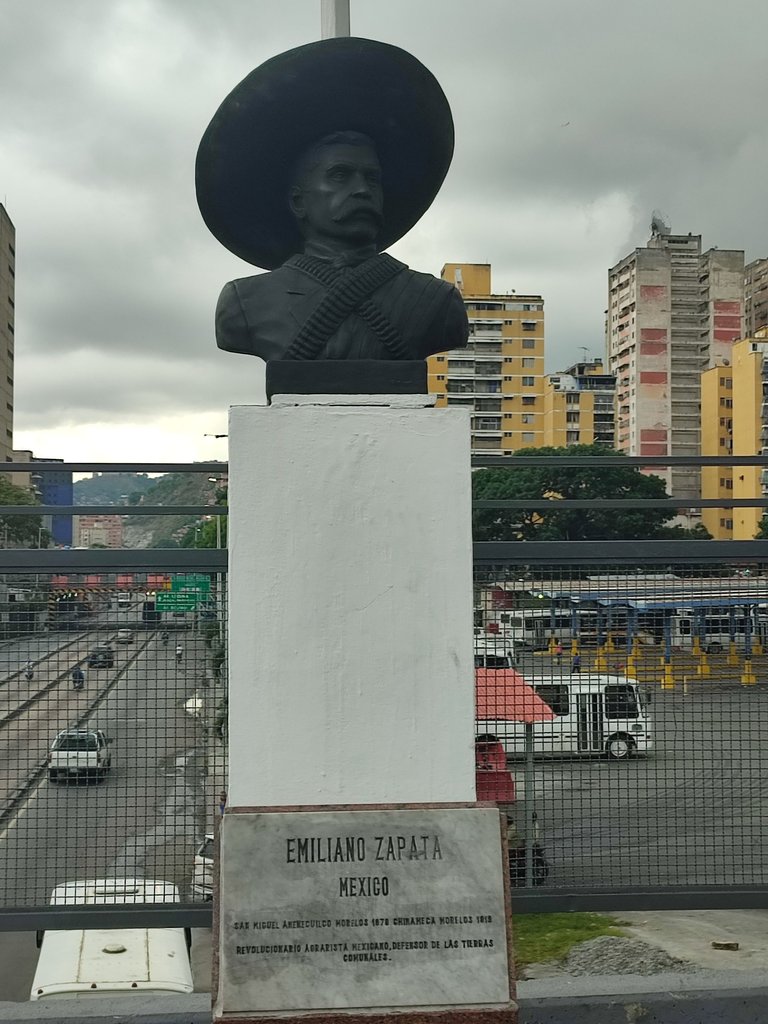

Emiliano Zapata Salazar (1879-1919), better known as "The Caudillo of the South", was one of the most important symbols of peasant resistance in Mexico, he was in command of the Liberating Army of the South, his main ideals revolved around social justice, freedom, equality, social democracy, respect for indigenous, peasant and worker communities.
Emiliano Zapata Salazar (1879-1919), mejor conocido como “El Caudillo del Sur”, fue uno de los símbolos más importantes de la resistencia campesina en México, estuvo al mando del Ejército Libertador del Sur, sus principales ideales giraron alrededor de la justicia social, libertad, igualdad, democracia social, respeto a las comunidades indígenas, campesinas y obreras.
source of information/fuente de la información

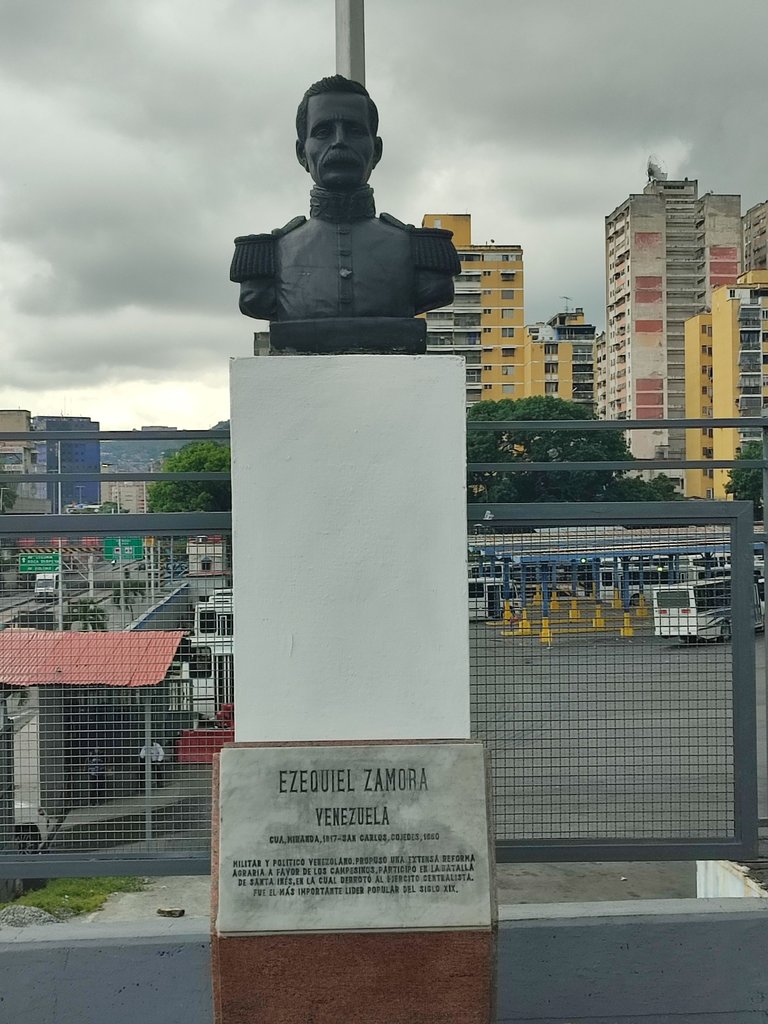

Ezequiel Zamora is an icon of the struggles that shaped Venezuela. A military and radical politician of the Federal War that covered Venezuela between 1859 and 1863, he advocated a regal agrarian transformation in favor of the peasants, who deserved their land for sustenance and development, and would be the way to give them freedom of action. He is known as the first popular leader of the 19th century, leader of the Federal Party and head of the Federalist Movement. History records that José Gil Fortoul identified him as a true and indomitable popular hero.
Ezequiel Zamora es un ícono de las luchas que conformaron a Venezuela. Un militar y político radical de la Guerra Federal que cubrió a Venezuela entre 1859 y 1863, que propugnaba una regia transformación agraria a favor de los campesinos, quienes merecían su tierra para el sustento y desarrollo, y sería el camino para darles libertad de acción. Conocido como el primer caudillo popular del siglo XIX, líder del Partido Federal y jefe del Movimiento Federalista. Registra la historia que José Gil Fortoul lo identificaba como un verdadero e indomable héroe popular.
source of information/fuente de la información

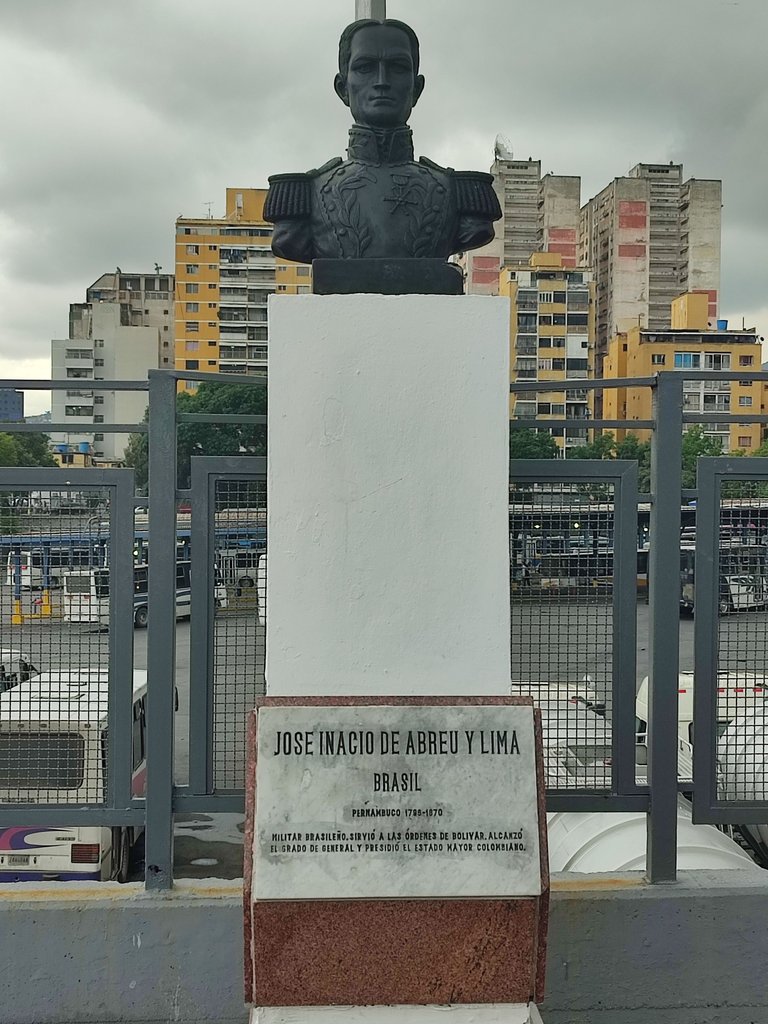

José Inácio de Abreu Lima Brazilian officer in the service of the Venezuelan War of Independence, born in Recife, Brazil, on April 6, 1794, and died in Pernambuco, Brazil, on March 8, 1869.
José Inácio de Abreu Lima brasilero oficial al servicio de la Guerra de Independencia en Venezuela, nacido en Recife, Brasil, el 6 de abril de 1794, y muerto en Pernambuco, Brasil, el 8 de marzo de 1869.
source of information/fuente de la información

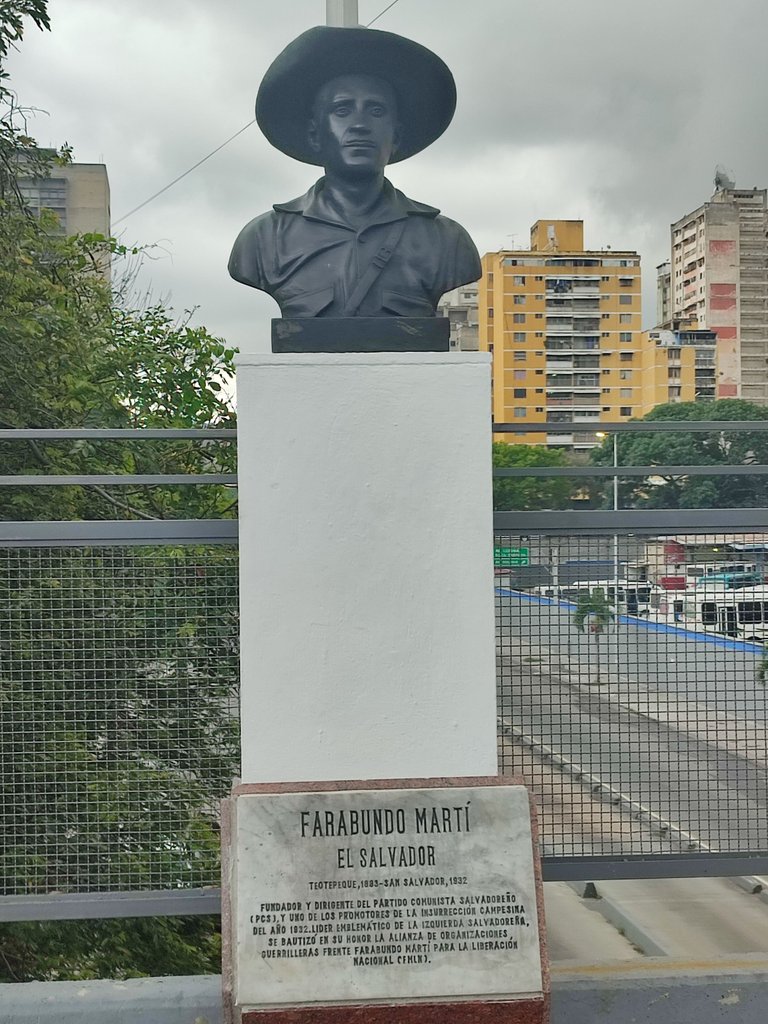

Agustín Farabundo Martí, Salvadoran revolutionary. After participating in the social struggles of the post-revolutionary period in Mexico, he collaborated in the founding of the Central American Socialist Party (Guatemala, 1925). Between 1928 and 1930 he joined the forces of Augusto César Sandino, who were fighting against the North American intervention in Nicaragua; he soon became a man of confidence of Sandino, who made him a colonel in his army.
Agustín Farabundo Martí,revolucionario salvadoreño. Tras haber participado en las luchas sociales del periodo posrevolucionario en México, colaboró en la fundación del Partido Socialista Centroamericano (Guatemala, 1925). Entre 1928 y 1930 se unió a las fuerzas de Augusto César Sandino, que combatían contra la intervención norteamericana en Nicaragua; pronto se convirtió en hombre de confianza de Sandino, que le hizo nombrar coronel de su ejército.
source of information/fuente de la información

The mere fact of investigating who they were, helped me a lot to nourish myself with each one of them and also to see the possible panorama that leaves all the history and the construction of the western culture. If we realize, each population has protested and fought to try to be heard, or to modify concepts other than those placed on them by the West, for example, the limitation of Venezuelans to be considered inferior to the Spaniards. The issue of racial acceptance in the United States, and how this led Martin Luther King to understand that it is not only to accept people of color but also to accept the struggles of others and their culture, as he accepted the culture of Gandhi: There are cases like those of Che and Garibaldi, who were beings with so much willpower that their struggles were not limited to a single country but traveled to different countries, unlike Zamora, who was dedicated to defend and fight for his territory, and in the case of Karl Marx, whose struggle was of conscience and idea, he offered the light and clarity of thought for a social sector that is found in all the countries of this world. Each of them had to fight a war that complemented the other, through the years they have been able to contribute to the construction and awareness of a great history of societies around the world, this is a great lesson of knowledge for me, and there is something very clear, in everything there is preparation, study, awareness, perseverance and teamwork.
El solo hecho de investigar quienes fueron, me ayudo mucho a nutrirme de cada uno de ellos y también ver el posible panorama que deja toda la historia y la construcción de la cultura occidental. Si nos damos cuenta, cada población ha protestado y guerreando para tratar de ser escuchados, o para modificar conceptos distintos a los que las que le colocó el occidente, por ejemplo, la limitación de los Venezolanos a ser considerados inferiores a los españoles. El tema de la aceptación racial en Estados Unidos, y como esto llevo a Martín Luter King a entender que no es únicamente aceptar a la gente de color es también aceptar las luchas de otros y su cultura, como el acepto a la cultura de Gandhi: existen casos como los de el del Che y Garibaldi, que eran seres con tanta fuerza de voluntad que sus luchas no se limitaban a un solo país sino que viajaban por diferentes países, a lo contrario de Zamora, que se dedicó a defender y luchar por su territorio, y en el caso de Carlos Marx que su lucha fue de conciencia e idea, ofreció la luz y claridad del pensamiento para un sector social que se encuentra en todo los países de este mundo. Cada uno de ellos les tocó luchar una guerra que complementada al otro, a través de los años han podido aportar a la construcción y la conciencia de una gran historia de las sociedades en todo el mundo, esto es una gran lección de conocimiento para mí, y hay algo bien claro, en todo hay preparación, estudio, conciencia, constancia y trabajo en equipo.

Without further ado, thank you very much for stopping by this post.
Sin más nada que decir, muchas gracias por pasar por este post.

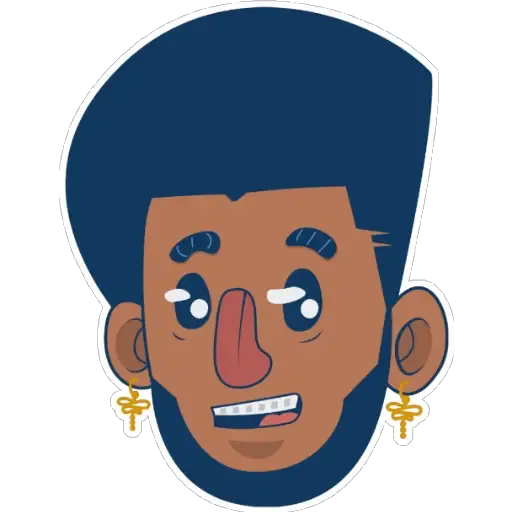



The rewards earned on this comment will go directly to the person sharing the post on Twitter as long as they are registered with @poshtoken. Sign up at https://hiveposh.com.
Discord. Si desea delegar HP al proyecto: Delegue 5 HP - Delegue 10 HP - Delegue 20 HP - Delegue 30 HP - Delegue 50 HP - Delegue 100 HP.Estas recibiendo un voto por parte del proyecto "Sound Music" (@music1sound) y este post fue seleccionado para el reporte de curación diaria. Contáctenos para saber más del proyecto a nuestro servidor de